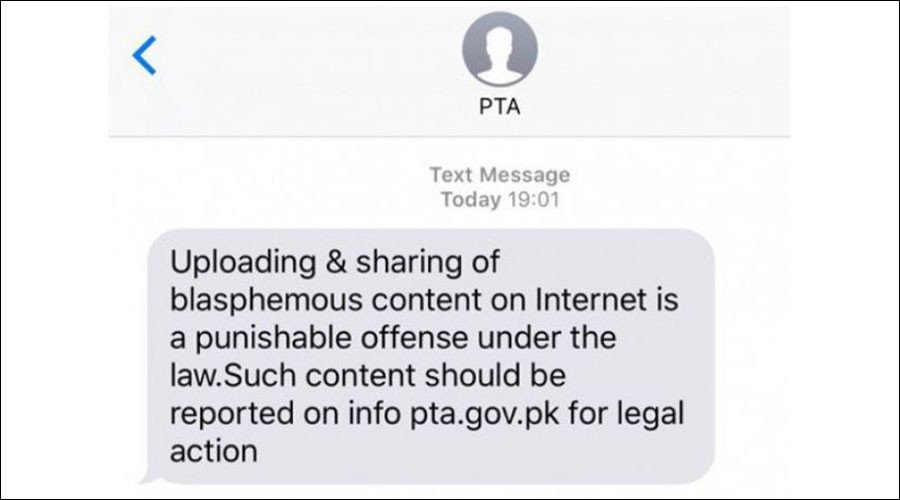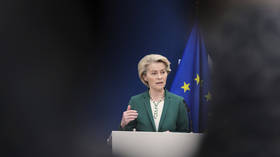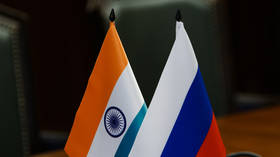Millions of Pakistanis sent govt blasphemy warning by text (PHOTO)

Pakistan’s government has sent millions of text messages warning citizens against the sharing of blasphemous content online. The move comes as authorities bid to combat a major uptick in religious violence as mob rule decides if ‘blasphemers’ live or die.
Pakistan Telecommunications Authority (PTA) asked members of the public to report any objectionable content to authorities.

The telecom regulator told AFP that it was acting on a court order. It’s feared, however, that the government message will embolden the actions of violent mobs.
“This mass messaging will only further fuel hatred among different sects and segments of the society. It is a very very bad move,” digital rights activist Shahzad Ahmad told AFP.
Earlier this month a 10-year old boy was shot dead in Balochistan province, Pakistan when a mob attacked a police station while attempting to lynch a Hindu man charged with blasphemy. Five others were also injured in the violence.
READ MORE: ‘Skull caved in’: Pakistani journalism student beaten to death for ‘blasphemy’
In 1986, former dictator Zia-ul-Haq added provisions to pre-existing blasphemy laws, inherited from the British Empire, which added the death sentence as the maximum penalty for insulting the Prophet Mohammad.
In March, Prime Minister Nawaz Sharif issued an order for the removal of blasphemous content online, stating that anyone found guilty of such offences would be subject to "strict punishment under the law."
TV anchor Moeed Pirzada has condemned the government’s mass messaging, saying it would lead to an increase in religiously motivated violence which has plagued Pakistan for years.
PTA sending mass texting to warn on "blasphemous content" will heighten public consciousness & will increase risks of religious violence
— Moeed Pirzada (@MoeedNj) May 9, 2017
“PTA’s mass texting on ‘blasphemy’ smacks of insincerity & political exploitation of religion; it will embolden public to greater violence,” Pirzada added in another tweet.













